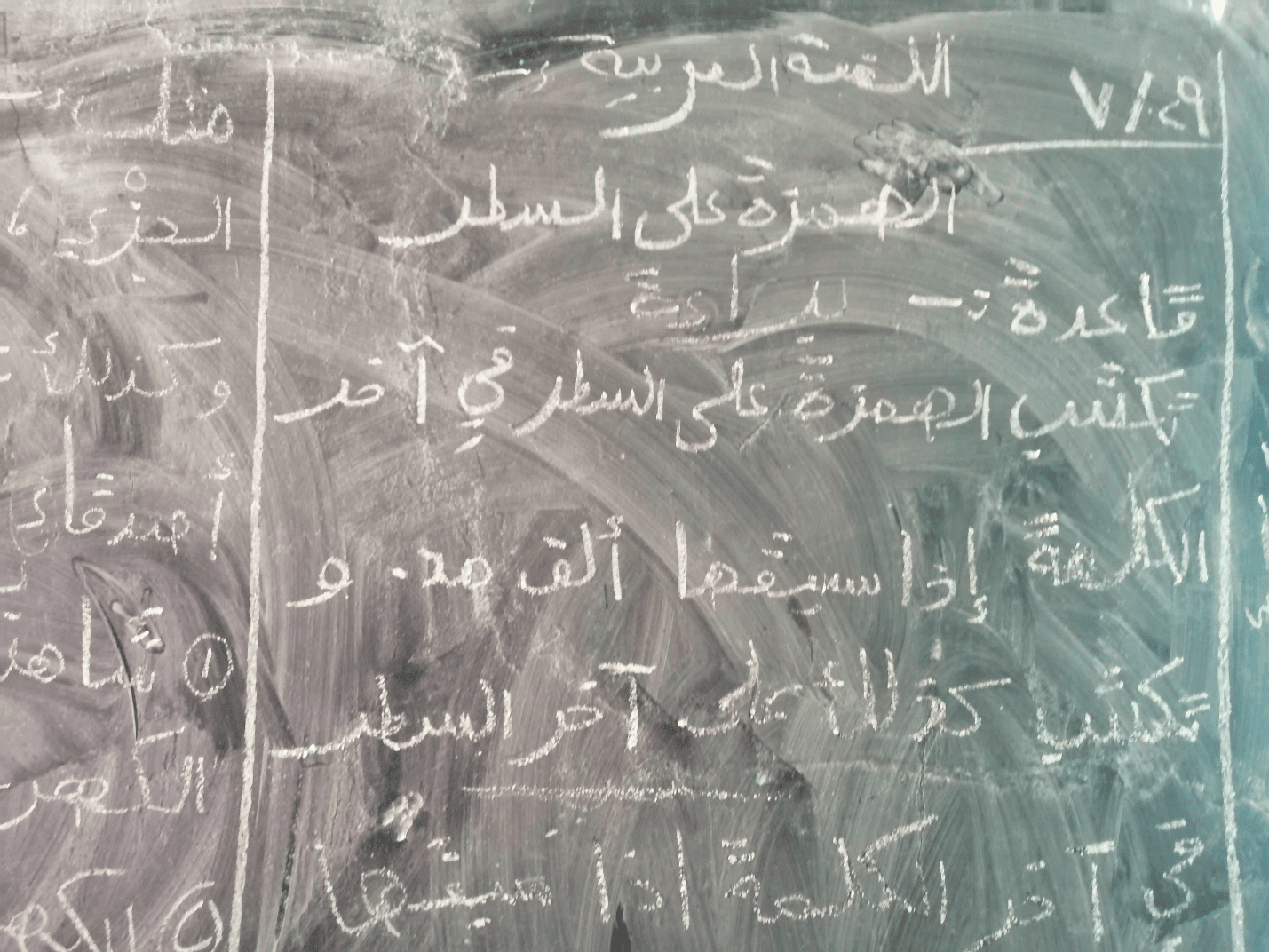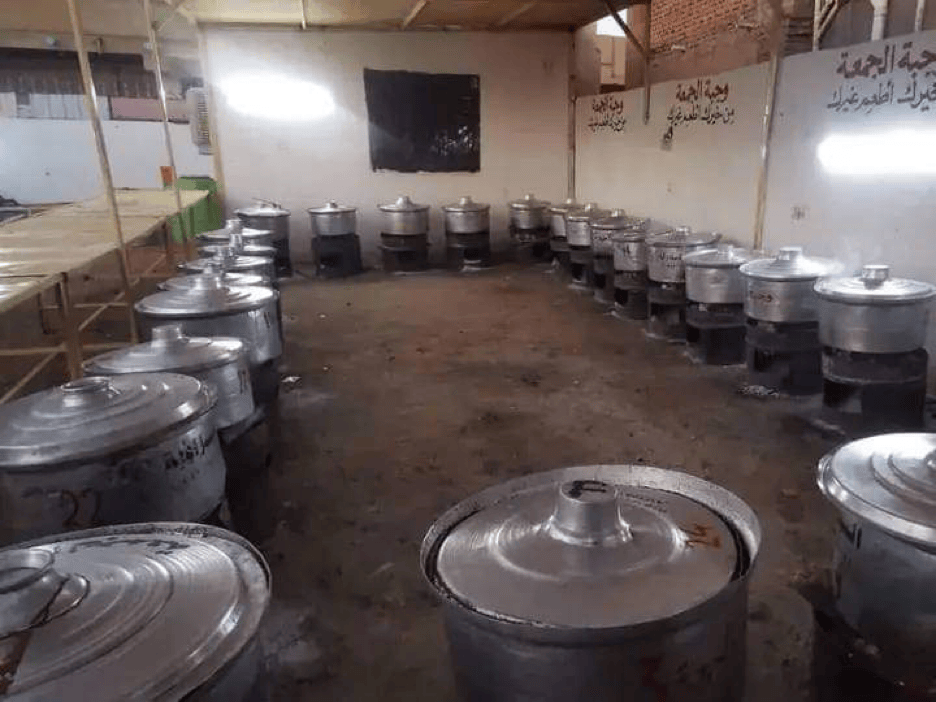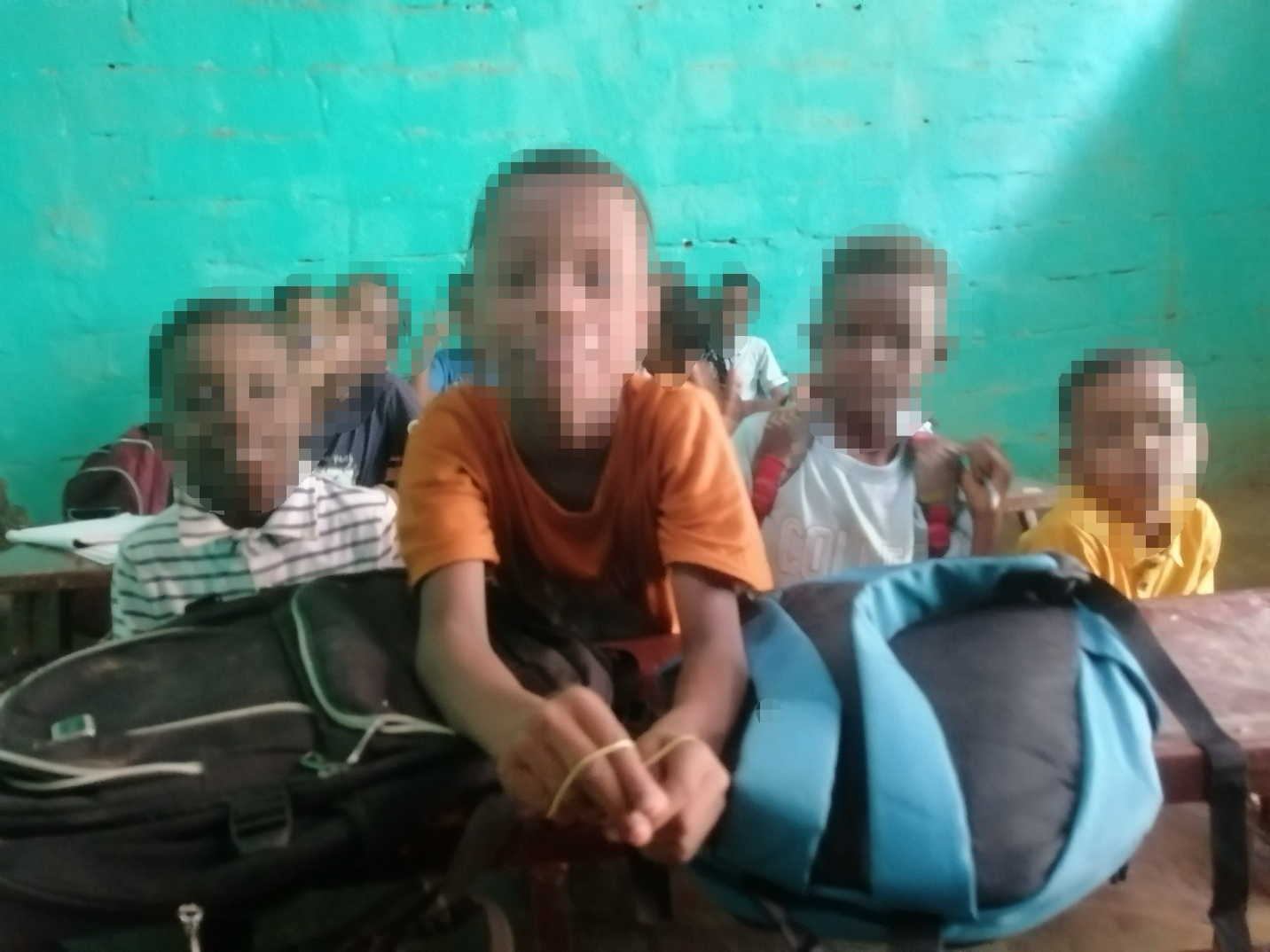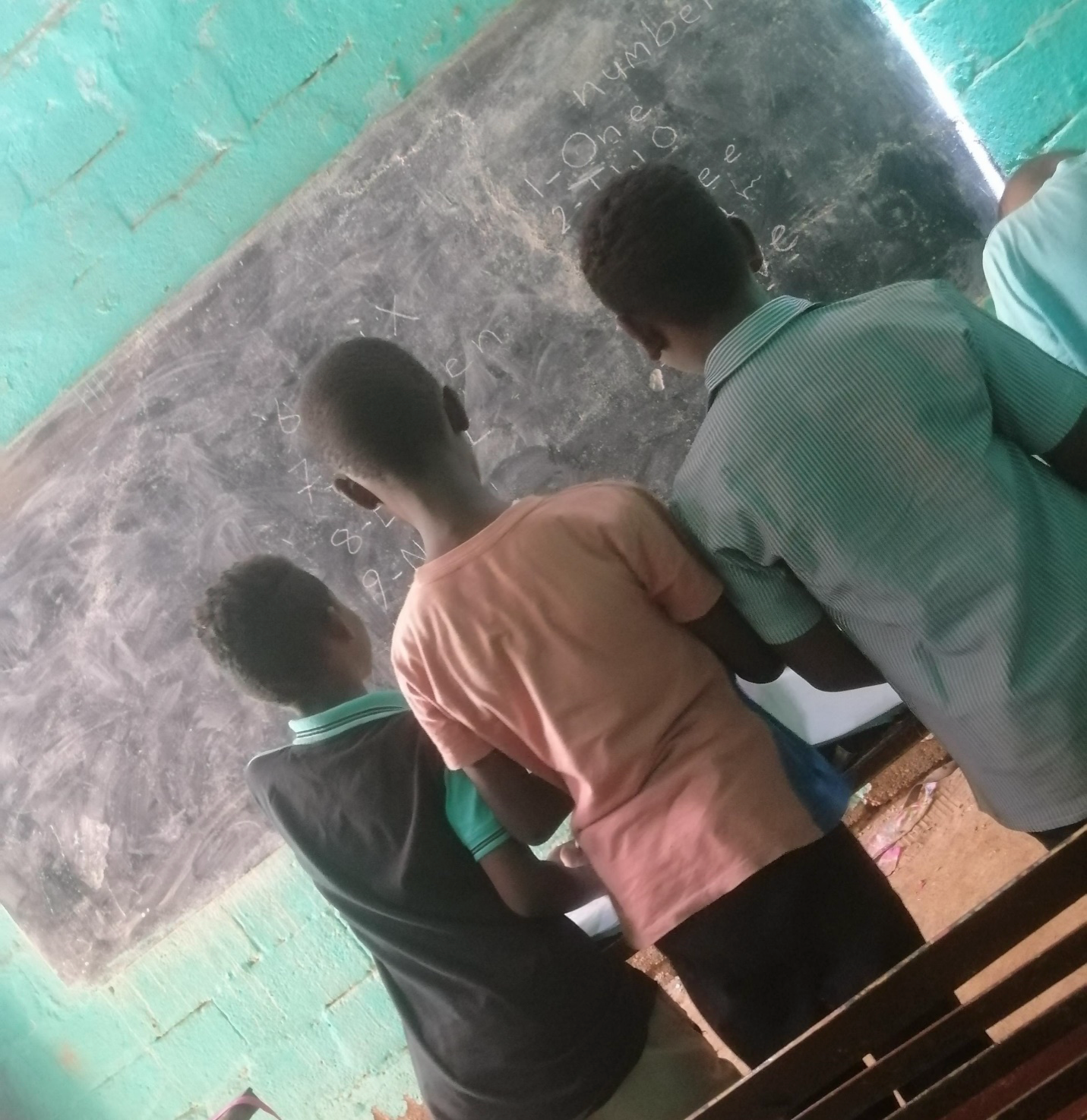Trigger Warning and Disclaimer: the content that you are about to read contains graphic and sensitive experiences. The opinions and opinions expressed in this piece solely reflect the author's views and not Andariya's. Reader discretion is advised. Read our full editorial notice here.
Education is a crucial element in the construction and advancement of societies, but Sudan is facing significant obstacles in this area, particularly in light of the current conflict. Attacks on educational facilities have increased dramatically since the outbreak of war in Sudan in April last year. The Armed Conflict Location and Event Database (ACLED) recorded 23 incidents of attacks on schools in Sudan between April 2023 and April 2024.
Throughout the conflict, the RSF has repeatedly attacked schools in Omdurman, one of the capital's three cities, which resulted in some schools being destroyed after being converted into IDPS centres. Schools in Omdurman have been subject to ongoing attacks, significantly disrupting the educational process. Some schools have been completely destroyed, which has made the educational situation even more complicated. These conditions have disrupted the education of thousands of children who face significant difficulties in accessing a safe and stable learning environment.
According to UN reports, there are 24 million children in Sudan, 19 million of whom are out of the education system as a result of the conflict, and due to the displacement crisis, at least 170 schools have been converted into shelters for displaced persons. Omdurman, due to its location between two of the main army camps, Wadi Saydna camp and the Military College in the north and the Engineering Corps camp in the west, is the least affected city in the capital by the current war. Omdurman served as a safe haven for many families who were relocated to it from other parts of the capital, Khartoum. There are no official statistics for the city's population after the outbreak of the war.
The security situation and the use of schools and other public facilities as shelters for internally displaced persons are causing a significant obstacle to the educational situation in Omdurman and Sudan in general, which prompted urgent intervention from the international community and local and regional civil society organizations to provide the necessary support and ensure the protection of children’s right to education.
Claiming their Rights
Last July, I worked as a teacher and financial manager at a primary school in Karari locality, when the school opened and conducted a three-month educational course. I became acquainted with the children there and observed their determination to attend school every day, despite the security and economic conditions that the city suffers from.
One day, during my Arabic teaching lesson for third-grade students, a shelling occurred nearby, so I stopped in panic when I heard the sound of a shell falling. However, one of the students said to me: "Why did you stop writing, teacher? The war will stop, so we have to study and be ready to rebuild Sudan." The statement shook me, and when I examined the children's faces, I noticed they were not scared by the sounds of the shelling, rather they were looking at me in determination and insisting that I finish the lesson.

The Arabic language class I was teaching at the time of the bombing, source: Bara'a Muhammad
Hardships
Mahmoud, a middle school student in his third year, told me that his school is located in a zone targeted by the RSF, but he remains committed to attending school despite the bombing and the high cost of books and stationery. He informed me that he spent 45,000 Sudanese pounds on books for the new semester, which at the time was equivalent to $25. This expense is a huge burden on most parents, which has forced most students to resort to digital books available on the internet.
The schools currently operating are only offering training courses, and the demand for them has increased in Omdurman. Schools sometimes demand fees that parents consider exorbitant in light of the economic conditions they are living in. During my tenure as a financial manager at a school, I came across many parents who protested tuition fees and shared their stories about how their lives have changed after the war and the difficulties they face in providing for their children.
One time, I recall telling a student who was late in paying his fees to hurry up and make the payment. The 9-year-old mentioned that he worked in the market for a street vendor after he returned from school. He sells his goods during the afternoon, earning a quarter of a dollar, so he can save money to pay his fees.
When I dug deeper to understand the situation of school children, I observed that a significant number of them do not eat breakfast at school. Upon investigating, it became apparent that many come from families that have been heavily financially affected by the war and are dependent on meals provided by central kitchens that are funded and managed by grassroots initiatives such as emergency response rooms.
A boy who was not yet 7 years old told me that he doesn't eat anything at school because his family can't afford to buy food and depends on food from the central kitchens in the neighborhood. Therefore, he comes to school empty-bellied and doesn't eat anything until he returns home to find that his brothers have brought some food from the neighborhood kitchen.
This is the reality for many families in Omdurman. Their economic situation collapsed as a result of the war as they lost their jobs and sources of income. They have become almost without income, working in marginal jobs to provide some money for their families, and many depend on the central kitchens in the neighborhoods to provide them with food.

A kitchen run by volunteers and charitable organizations. Photo courtesy of Suhanda Abdel Wahab, Facebook.
A Right, Not a Gift
Article 28 of the Convention on the Rights of the Child stipulates the child's right to education, and Article 38 stresses the need for parties to conflict to take all appropriate measures to ensure that children receive education during crises and armed conflicts and not to involve them in armed conflict. The Additional Protocols to the 1977 Geneva Conventions relating to the Protection of Victims of Armed Conflicts also included rules to protect schools, students and teachers during wars, as Article 24 of the 1949 Geneva Convention stipulates that contracting parties must take all possible measures to ensure the protection of children, including the provision of education. Nonetheless, most of these international treaties that aim to protect children's right to education in times of armed conflict are texts that have no resonance in Sudan.

Children in a school in Karari, Omdurman, Source: Bara'a Mohammed
The Ministry's Decision
The prolonged fighting for more than a year and the absence of political solutions leading to a permanent ceasefire or an end to the war are causing economic distress for many individuals, families, and communities.
Despite the security and economic situation, children in Omdurman are determined to return to school, despite the Ministry of Education's prohibition on operating schools, except for high school students for the year 2023, due to indiscriminate shelling. Despite this decision, some primary schools have commenced teaching primary school students.
Last year, I visited a school that opened its doors despite the restrictions and shelling. I was stunned by the number of students, which surpassed two hundred students. The children's faces were filled with an unparalleled passion for learning. Some of them study in the schoolyard, which lacks a roof to shield them from potential bombing or stray bullets.
It's essential to question schools' responsibility and commitment to maintain children’s safety in the current situation and to understand the motivations of students towards education, despite the risks and financial strain. As the war drags on and the wheel of life comes to a near-total halt, and due to the psychological effects of the war on children, many may resort to attending school to divert their attention from the war to other subjects, play, and meet their friends and colleagues. Kids may be hoping to regain a sense of routine, pattern, and order in their lives that they may have experienced before the war. As for schools, they are trying to make ends meet and provide employment opportunities, even if limited, for individuals who lost their jobs due to the war.
The Psychological Impact of War on Children
Children in Omdurman suffer from profound psychological effects as a result of the ongoing war that surrounds them daily. Due to their exposure to shelling and explosions, they have developed an extreme fear, as the war has denied them the right to a normal childhood.
It has been established that children's experiences of conflict and its consequences can lead to feelings of loneliness, anxiety, and stress. In addition, repeated exposure to forms of violence may result in emotional numbness, which explains why children are accustomed to hearing the sounds of bombings and random shelling. Some children may develop aggressive behavior as a result of maturing in an environment filled with violence. In a study conducted to determine the effects of armed conflict on the mental health of adults in Sudan, 25% of the people studied suffered from moderate-to-severe depression, while 62% suffered from severe depression. The psychological effects of war on children have not yet been studied, but a report by ACAPS in November 2023 indicated that children's mental health is a growing concern, as their exposure to hunger, disease, and loss traumatizes them.
Children's Fight for Education
The closure of schools in Omdurman has forced some students to lean on self-teaching, where there is pressure on them to persevere and search for alternatives to continue their education, knowing that education is the only way to achieve a better future. Students had to travel to other cities to sit for exams due to the Ministry of Education's instructions to stop education and exams in Omdurman.
Khaled, a sixth grader, is a living example of this strong spirit. Despite the great challenges, Khaled insisted on continuing his education. Due to the security situation, he was unable to attend his classes regularly at his school, which was holding a course covering the basic subjects. However, he studied and completed the rest of the subjects on his own, and decided to take the exams. When exams were due, he went to a safe state where he stayed with relatives until he could take his exams. Khalid endured time away from his family, but his hard work and determination led him to excel in the exams and obtain excellent grades, making his family and teachers proud.

Children of an Omdurman school defy all odds to continue their education. Source: Bara'a Mohammed
Conclusion
Education is essential for children's growth and the acquisition of skills and knowledge that will be helpful in their present and future. Research shows that children in developing countries who complete their education earn a 10% higher income, indicating that education has a positive impact on the chances of economic development for individuals and society as a whole.
As the conflict rages and children and parents have to ponder on the way forward, UNICEF and Save the Children urged the Sudanese authorities to reopen schools in safe areas and to support alternative teaching methods in communities that are unable to open schools due to safety and security concerns. They also pledged the international community to stand up for Sudanese children who are at risk of losing their education and to offer the necessary resources to ensure that millions of Sudanese children return to school and ensure that children affected by the conflict have access to education and psychosocial support in safe environments.
Education in light of the current conflict in Sudan has the potential to play a crucial role in preventing civilian children from engaging in combat, and protecting girls from early marriage. Education can also provide children with sufficient awareness and qualitative knowledge that may help them better understand the context and create knowledge based on experiences and indigenous knowledge if teachers are properly trained and educational curricula are provided that take into account the current context.
When considering a solution to the educational dilemma for children in Omdurman and other areas where conflict is active and security conditions prevent students from going to school, we must consider integrated solutions that take into account the multifaceted dilemmas discussed in this article, and others related to infrastructure and access to services that may facilitate education, such as the internet, in addition to providing psychological support for students.